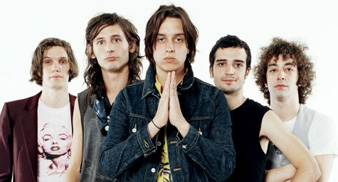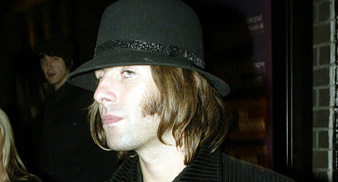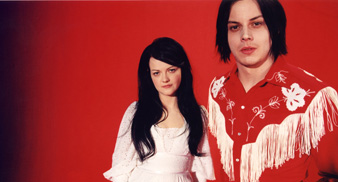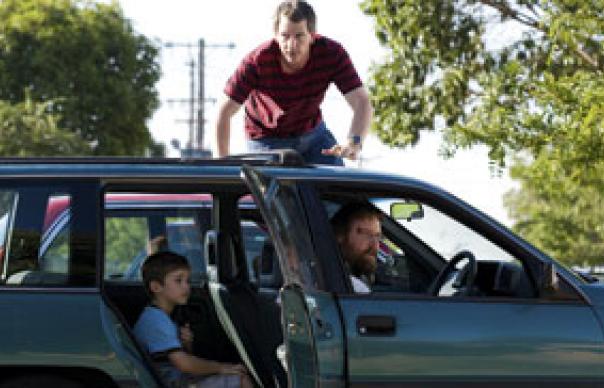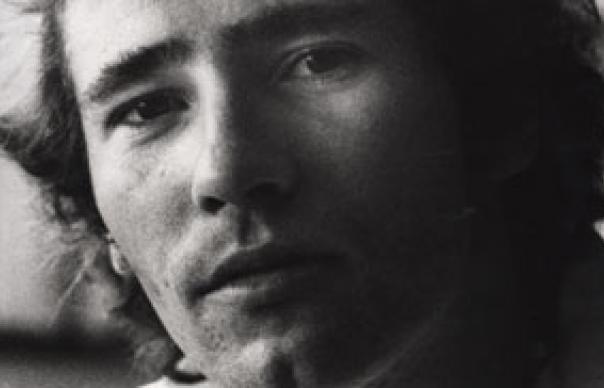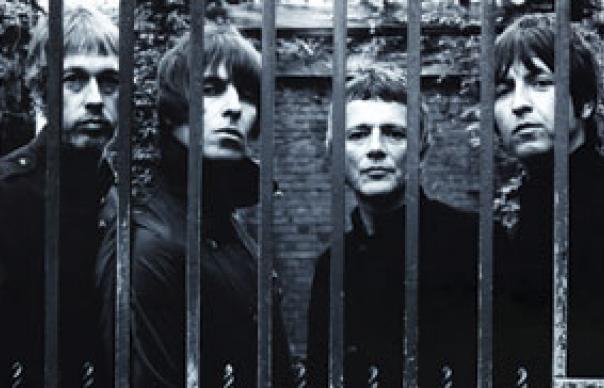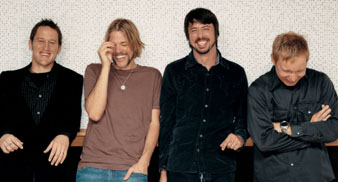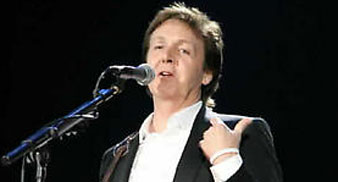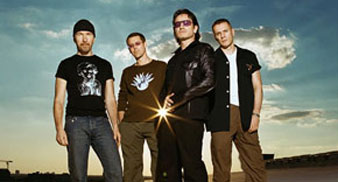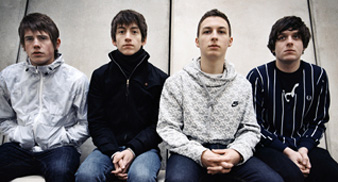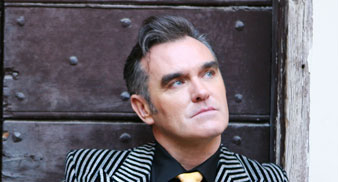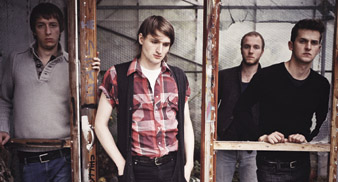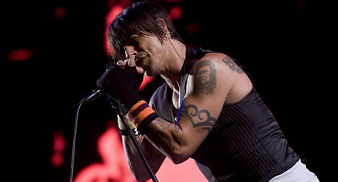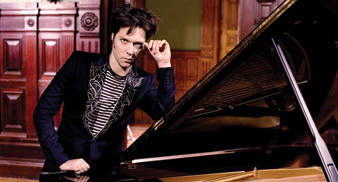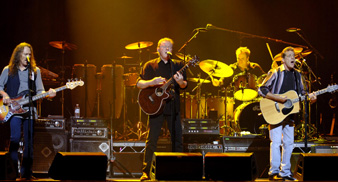Dave Grohl has been awarded the Godlike Genius award at this year’s [url=http://www.nme.com/awards]Shockwaves NME Awards 2011[/url], held by Uncut‘s sister-title NME.
The Foo Fighters frontman was handed the trophy at the O2 Academy Brixton in London last night (February 23), before playing a surprise 23-song set that saw the band premiere their new album ‘Wasting Light’ in full.
A host of musicians and stars including Paul McCartney, Jack Black, Josh Homme and John Paul Jones paid tribute to Grohl in a video montage that played as he took to the stage, and the crowd gave him a standing ovation as he accepted his award from The Who‘s Roger Daltrey.
Clad in black, Grohl was clearly overawed by the reception, and stood smiling for a few seconds before stating: “You guys realise they gave this one to a drummer, right? This one’s for the drummers!”
He then spoke about the time he snuck into the awards venue, the O2 Academy Brixton, to see Pixies with his Nirvana bandmates, then said the award was “for Kurt [Cobain]”.
He added: “Oh, and by the way, they asked us to play tonight and we thought, ‘Yeah, OK, sure.’ And they said, ‘Why don’t you do four or five songs?’ And I said, ‘Fuck that, why don’t we play for two fuckin’ hours?'”
Foo Fighters then played a full live set, kicking off with a cover of The Who‘s ‘Young Man Blues’, with Daltrey on vocals.
The band went on to play their new album ‘Wasting Light’ in full, before playing a number of their best-known hits including ‘Monkey Wrench’ and ‘Everlong’.
Elsewhere at the ceremony, Muse, PJ Harvey and Biffy Clyro were also big winners.
The full list of [url=http://www.nme.com/awards]Shockwaves NME Awards 2011[/url] winners and nominees are:
Godlike Genius: Dave Grohl
Philip Hall Radar Award: The Naked And Famous
Teenage Cancer Trust Outstanding Contribution To Music: PJ Harvey
John Peel Award for Innovation: Crystal Castles
Best British Band (supported by Shockwaves)
Winners: Muse
Nominated: Arctic Monkeys, Biffy Clyro, Foals, Kasabian
Best International Band (supported by T4)
Winners: My Chemical Romance
Nominated: Arcade Fire, Kings Of Leon, The Drums, Vampire Weekend
Best Solo Artist
Winner: Laura Marling
Nominated: Florence Welch, Frank Turner, Kanye West, Paul Weller
Best New Band (supported by Boxfresh)
Winners: Hurts
Nominated: Beady Eye, Everything Everything, The Drums, Two Door Cinema Club
Best Live Band
Winners: Biffy Clyro
Nominated: Arcade Fire, Foals, Kasabian, Muse
Best Album
Winner: Arcade Fire – ‘The Suburbs’
Nominated: Crystal Castles – ‘Crystal Castles II’, Foals – ‘Total Life Forever’, My Chemical Romance – ‘Danger Days: The True Lives Of The Fabulous Killjoys’, Two Door Cinema Club – ‘Tourist History’
Best Track (supported by NME Radio)
Winner: Foals – ‘Spanish Sahara’
Nominated: Cee Lo Green – ‘Fuck You’, Gorillaz – ‘Stylo’, Janelle Monae (featuring Big Boi) – ‘Tightrope’, Mark Ronson & The Business Intl. – ‘Bang Bang Bang’
Best Video (supported by NME TV)
Winners: My Chemical Romance – ‘Na Na Na (Na Na Na Na Na Na Na Na Na)’
Nominated: Arcade Fire – ‘We Used To Wait’, Brandon Flowers – ‘Crossfire’, Chase & Status – ‘Let You Go’, Gorillaz – ‘Stylo’
Best Festival
Winners: Glastonbury
Nominated: Download, Reading And Leeds Festivals, T In The Park, V Festival
Best Dancefloor Filler
Winners: Professor Green – ‘Jungle’
Nominated: Crystal Castles – ‘Baptism’, Kele – ‘Tenderoni’, Plan B – ‘Stay Too Long’, Tinie Tempah – ‘Pass Out’
Best TV Show
Winner: ‘Skins’
Nominated: ‘Misfits’, ‘Never Mind The Buzzcocks’, ‘Peep Show’, ‘The Inbetweeners’
Best Film
Winner: Inception
Nominated: Get Him To The Greek, Kick-Ass, Scott Pilgrim Vs The World, The Social Network
Hero Of The Year
Winner: Lady Gaga
Nominated: Gerard Way, Julian Assange, Kanye West
Villain Of The Year
Winners: David Cameron
Nominated: Axl Rose, Justin Bieber, Nick Clegg, Simon Cowell
Most Stylish (supported by Shockwaves)
Winner: Brandon Flowers
Nominated: Hayley Williams, Lady Gaga, Liam Gallagher, Noel Fielding
Least Stylish
Winnes: Justin Bieber
Nominated: Cheryl Cole, Ke$ha, Lady Gaga, Liam Gallagher
Worst Album
Winners: Justin Bieber – ‘My World’
Nominated: Cheryl Cole – ‘Messy Little Raindrops’, Katy Perry – ‘Teenage Dream’, Kings Of Leon – ‘Come Around Sundown’, My Chemical Romance – ‘Danger Days: The True Lives Of The Fabulous Killjoys’
Worst Band
Winners: Jonas Brothers
Nominated: 30 Seconds To Mars, JLS, Kings Of Leon, Tokio Hotel
Best Band Blog or Twitter
Winner: Hayley Williams
Nominated: Frank Turner, Kanye West, Lily Allen, Theo Hutchcraft
Best Book
Winner: John Lydon – ‘Mr Rotten’s Scrapbook’
Nominated: Carl Barat – ‘Threepenny Memoir’, Jay-Z – ‘Decoded’, Keith Richards – ‘Life’, Russell Brand – ‘My Booky Wook 2’
Best Small Festival (50,000 capacity or lower)
Winners: RockNess
Nominated: Bestival, Kendal Calling, Latitude, Underage Festival
Best Album Artwork
Winner: Klaxons – ‘Surfing The Void’
Nominated: Foals – ‘Total Life Forever’, Gorillaz – ‘Plastic Beach’, MGMT – ‘Congratulations’, My Chemical Romance – ‘Danger Days: The True Lives Of The Fabulous Killjoys’
Hottest Woman
Winner: Alison Mosshart
Nominated: Emily Haines, Hayley Williams, Lady Gaga, Shakira
Hottest Man
Winners: Matt Bellamy
Nominated: Alex Turner, Billie Joe Armstrong, Dominic Howard, Jared Leto
Latest music and film news on Uncut.co.uk.
Uncut have teamed up with Sonic Editions to curate a number of limited-edition framed iconic rock photographs, featuring the likes of Pink Floyd, Bob Dylan and The Clash. View the full collection here.



